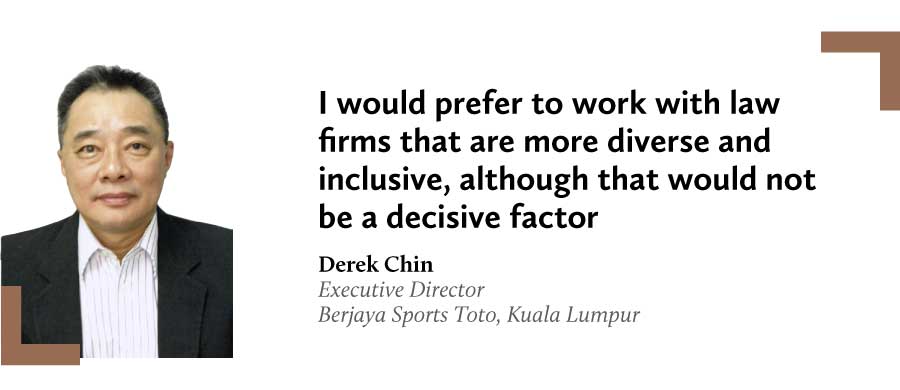As general counsel in the west demand greater diversity and inclusion from their legal advisers, law firms in Asia must step up to the plate. But just how committed is the region’s legal profession to delivering such change? Vandana Chatlani reports
In 2019, 170 companies including Getty Images, Etsy and Heineken USA published an open letter accusing law firms of a lack of diversity, particularly at the partnership level, which remains “largely male and largely white”.
The same year, 65 general counsel from the UK and European companies signed a statement of support to increase diversity and inclusion (D&I) across the legal sector. The number of signatories has grown to more than 100. The group – General Counsel for Diversity & Inclusion (GCD&I) – is led by a board comprising general counsel from multinationals Shell, BHP, Vodafone, Anglo American, Unilever and Diageo.
At the end of 2021, Microsoft UK also announced that it would award law firms a financial bonus of up to 3% on their annual fees if they met the tech company’s 2022 diversity targets.
GCD&I pledges to promote diversity within its in-house teams and in the wider business community, consider diversity in its hiring, and partner with law firms to adopt best practices in D&I. The organisation has drawn up a framework with broad guidelines that both in-house counsel and law firms can use to drive D&I initiatives in a purposeful and practical manner.
But across Asia, the demand for D&I has been slower to catch on.
“Expertise and competitiveness are the most important criteria when selecting a law firm,” says Chae Jooyup, vice president and general counsel at SK Biopharmaceuticals in Seoul. “We don’t put much emphasis on diversity and inclusion itself … [but] D&I may increase the expertise and competitiveness of a law firm in the long run.”
 Derek Chin, executive director at investment holding company Berjaya Sports Toto in Kuala Lumpur, shares a similar view. “What is most important to me is the level of expertise, quality of advice and service standards that a law firm has, or can provide, to meet my purposes. I would prefer to work with law firms that are more diverse and inclusive, although that would not be a decisive factor.”
Derek Chin, executive director at investment holding company Berjaya Sports Toto in Kuala Lumpur, shares a similar view. “What is most important to me is the level of expertise, quality of advice and service standards that a law firm has, or can provide, to meet my purposes. I would prefer to work with law firms that are more diverse and inclusive, although that would not be a decisive factor.”
Janice Lee, a senior adviser at Kim & Chang in Seoul, adds: “Clients certainly emphasise their commitment to D&I, and more often than not we have received suggestions or comments to have female lawyers on particular matters. However, by and large, it is rare that they demand that we provide diverse teams.”
 A different trajectory
A different trajectory
Companies and law firms across Asia appear to be on a different trajectory than their counterparts in the West, where racial and ethnic tensions have been at the forefront of D&I initiatives. The Black Lives Matter movement, for example, further propelled debate around racial divisions.
“The social tensions that have historically arisen in post-colonial Western societies have acted as a catalyst for these positive initiatives,” says Tiziana Sucharitkul, co-managing partner and director of dispute resolution at Tilleke & Gibbins in Bangkok. “The leadership at local-headquartered firms [in Asia] just aren’t operating within that context.”
You must be a
subscribersubscribersubscribersubscriber
to read this content, please
subscribesubscribesubscribesubscribe
today.
For group subscribers, please click here to access.
Interested in group subscription? Please contact us.
你需要登录去解锁本文内容。欢迎注册账号。如果想阅读月刊所有文章,欢迎成为我们的订阅会员成为我们的订阅会员。

LexOrbis
709/710 Tolstoy House
15-17 Tolstoy Marg
New Delhi – 110 001
India
Mumbai | Bengaluru
Contact details
Tel: +91 11 2371 6565
Email: mail@lexorbis.com




























